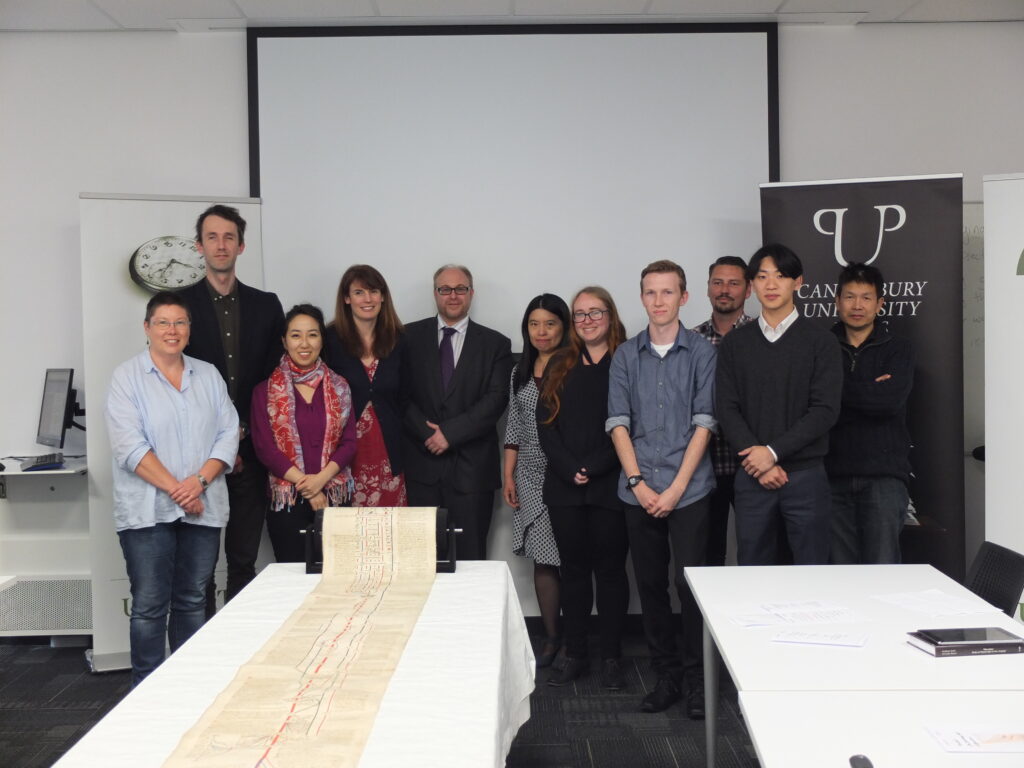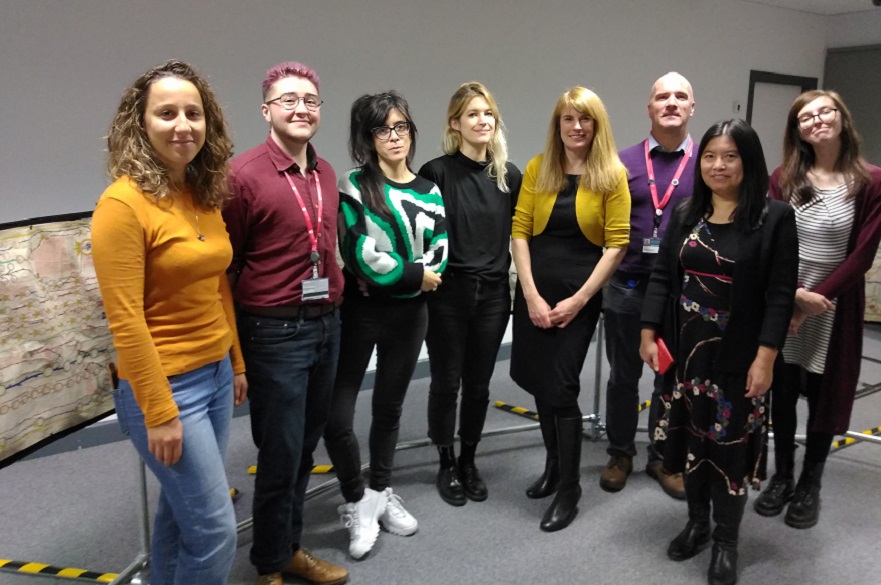The Wars in the Workshop project aims to further our understanding of fifteenth-century genealogical rolls in their social, political and material context through the interplay of historical, scientific and digital methods. These manuscript rolls are a vital, but underrepresented source for understanding how power was represented and how people understood national history during the fifteenth century. Despite their significance, many remain outside of public view, housed in libraries, archives and private collections all over the world.
The preliminary project began with the Canterbury Roll, a genealogical roll that was originally produced in fifteenth-century England, but now resides in Christchurch, New Zealand. Scientific analysis on the roll, undertaken by the NTU ISAAC Lab, has revealed a lot about how the roll was produced and edited. The digital edition, published in 2017 by the UC Arts Digital Lab, allows anyone around the world to view the roll at the click of a button.

Genealogical rolls, like the Canterbury Roll, were seemingly not produced in isolation, but were produced in multiples to satisfy a growing demand for such works. The writers and producers of the rolls were highly conscious of making sure their works were supportive of the current ruler, and by comparing the rolls we can see where they edited and adapted their works in light of a changing political landscape. Only through comparative study of the range of manuscript rolls may we gain a better understanding of what these rolls were intended for.
The Wars in the Workshop project seeks to establish a new framework for studying genealogical rolls by producing a digital tool-kit that allows for the comparison of text, images and metadata on multiple manuscripts across their diverse holding institutions. The potential to link data will allow for comparative research to be undertaken in ways it hasn’t before and allow broader access to a valuable collection of sources for fifteenth-century political culture.
